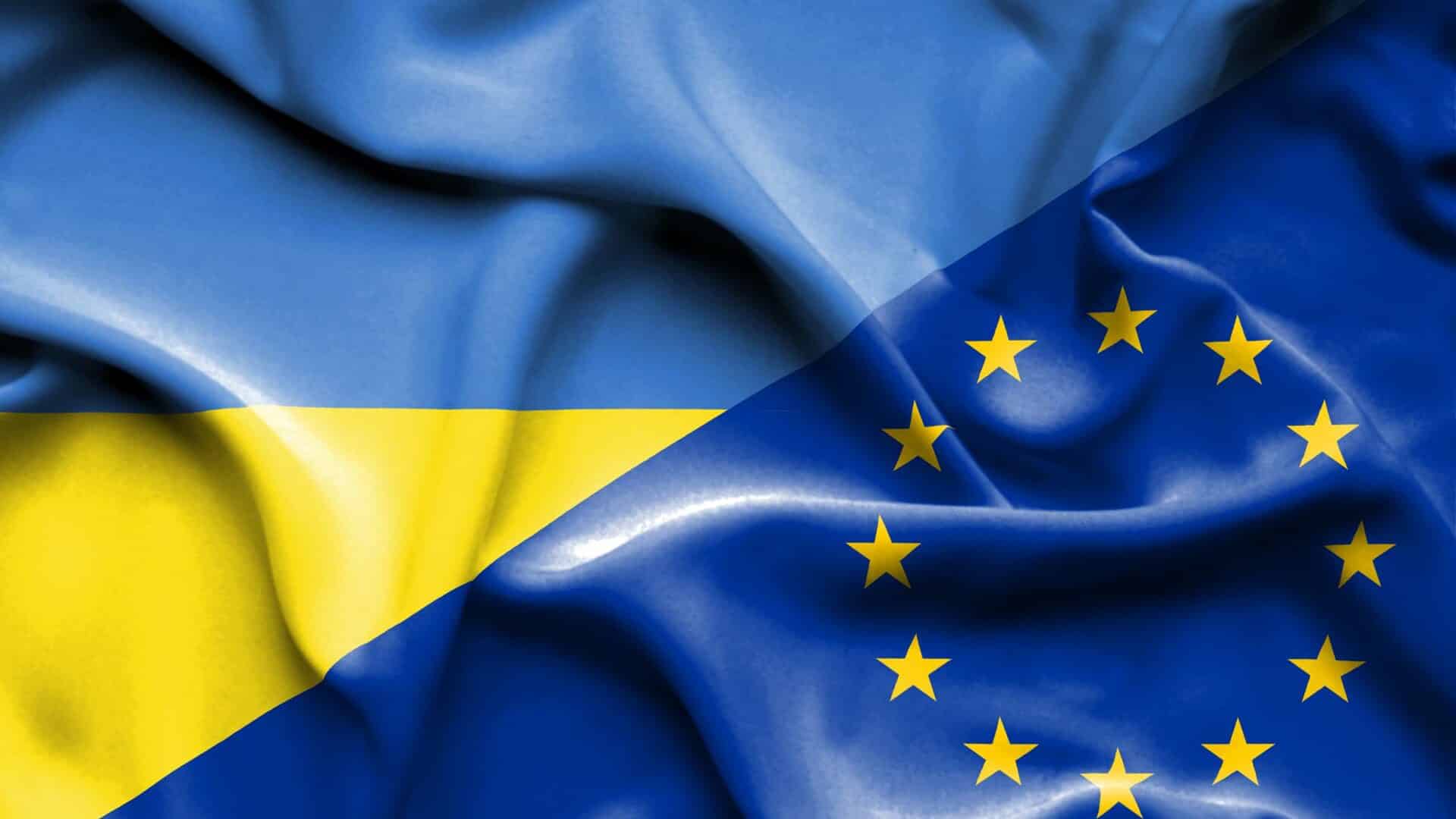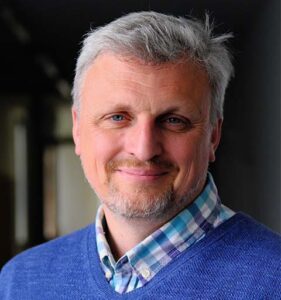The Russian invasion of Ukraine on 24 February 2022 posed an existential challenge for Ukraine and the EU. On the one hand, it tested the EU’s resilience and political autonomy. On the other, it called into question the existence and territorial sovereignty of Ukraine—a country deeply committed to EU integration, having already sacrificed part of its territory and the lives of thousands of its citizens for the right to sign the EU-Ukraine Association Agreement in 2014. Nevertheless, the EU and its Member States remained reluctant to even acknowledge the prospect of Ukraine’s EU membership.
This ambiguous state of affairs was shattered when on 28 February 2022, President Zelensky triggered article 49 of the Treaty on European Union (TEU), which sets out the application process for countries to join the Union. Very few people expected President Zelensky and his government to even think about EU membership amidst the avalanching invasion of the Russian army on a scale comparable to the operation ‘Barbarossa’ in 1941. President Zelensky proudly signed the formal application to the EU whilst Russian army troops were a mere twenty kilometres from his office in Kyiv. The long-cherished dream of the Ukrainian nation to apply for EU membership suddenly took place at the most critical and fatal moment of its history.
The EU institutions quickly realized that immediate and resolute actions were required. It only took a week for the EU Council to activate the procedure set out in art 49 TEU and invite the European Commission to issue its Opinion on Ukraine’s application bid. The European Commission also acted swiftly and assessed Ukraine’s ability to join the EU by 17 June 2022.1
Finding that ‘Ukraine is a European State which has given ample proof of its adherence to the values on which the European Union is founded’, it recommended to the Council that the country ‘should be given the perspective to become a member of the European Union’, and to the European Council that it should be granted the (much sought after) ‘candidate status’—a label that is not formally envisaged by art 49 TEU, but which has de facto become a milestone in the accession process. While confirming that Ukraine’s accession would be based on ‘established criteria and conditions’, including the so-called ‘Copenhagen criteria’, the Commission also requested urgent reforms in Ukraine’s most critical sectors.2
Meanwhile, Ukraine’s accession process is in standby mode which means that accession negotiations will be triggered in 2023, once Ukraine can show progress in reforming the sectors specified by the European Commission.
Parallel to the accelerating speed of Ukraine’s accession, the EU was searching for new forms of political cooperation to strengthen its resilience and ensure mutual solidarity in times of intimidating security and economic crises in Europe. This led to the European Political Community (EPC) initiative, proposed by President Macron in May 2022 at the time of France’s presidency of the EU Council. The French government outlined its vision of the EPC as a new political platform that would be ‘open to European States that share a common set of democratic values, whether or not they are members of the Union and regardless of the nature of their current relationship with the European Union’ with the overall purpose to ‘strengthen the political, economic, cultural, and security links between its members’. It may cover cooperation within ‘foreign and security policy issues, climate change and the supply of energy and other raw materials, food security, infrastructure development and interconnection, mobility, migration, the fight against organized crime, relations with other geopolitical actors’. According to the government website of the Netherlands, overall it would ‘provide a forum for coordination, decision-making and cooperative projects to respond in a concrete way to the challenges facing all countries on the European Continent’.
The European Council supported the French initiative at its June 2022 summit. The vagueness of the EPC initiative was immediately perceived with a degree of suspicion by some third countries. Some candidate countries feared that the EPC could undermine or even serve as an alternative to their ultimate EU membership, like the European Neighbourhood Policy and Eastern Partnership did before. However, the French government underlined that ‘the European Political Community would not be an alternative to EU membership and would not be a substitute to the enlargement process. For European States wishing to join the European Union, it would, on the contrary, allow for the strengthening of links with EU Member States prior to accession’.
With such controversies swirling in the background, the kick-off EPC meeting took place in Prague on 6 October 2022, during the Czech presidency of the EU Council. This meeting can be hailed as successful for several straight-forward reasons. First, it exceeded most expectations since there were not many expectations for it. Second, the meeting was attended by an impressive number of European countries with different and even sometimes conflicting political interests and objectives. For instance, it was attended by not only all EU Member States but also the UK, Turkey, and the Eastern Partnership countries.3
EU High Representative in CFSP J. Borrell concluded in the aftermath of the EPC kick-off meeting that the EPC may be seen as: (a) a community of shared principles through an alignment on principles that guarantee peace and stability on the continent; (b) a community of resilience to reduce the exposure and vulnerability of European countries to risks and threats of an increasingly hybrid nature; (c) a community of cooperation aimed at strengthening economic cooperation, interconnectedness, and cross-border sectorial cooperation; (d) a community that adds value to the existing institutions and formats since the EPC is complementary to EU policies and other regional frameworks.
What is the practical value of these optimistic conclusions? What could the results of the first kick-off meeting of the EPC mean for the accession of Ukraine to the EU?
- The EPC kick-off meeting was attended by almost all countries of the European continent with heterogeneous European integration aspirations and with sometimes conflicting geopolitical interests and objectives. On one hand, it may turn future EPC meetings into a chaotic political ‘bazaar’. On the other hand, it may serve as a unique and valuable laboratory in which solutions to current and future European crises and challenges, like ending the war in Ukraine and ensuring energy independence of the European countries, can be tested. The Black Sea Grain Initiative between the UN and Russia and between the UN and Ukraine mediated by Turkey in 2022 is a good example of a deal that could have been developed and exercised under the EPC framework. Participation of Ukraine in further EPC initiatives could be a valuable tool to stimulate ‘parallel’ integration of Ukraine into selected pan-European projects while being engaged in the meticulous EU accession process.
- The EPC could contribute to the eventual return of some European pariah states back to the ‘European concert’. For instance, representatives of Russia and Belarus may be invited to participate in the forthcoming EPC meetings and activities. Surely, officials of the current Russian and Belarussian regimes cannot be welcomed to any of the EPC’s meetings. However, representatives of the Russian and Belorussian internationally recognized opposition may be invited to attend the EPC’s meetings to discuss possible formats for future EU policies towards post-war Russia and Belarus. The ongoing war in Ukraine should not hinder the important task of unifying and consolidating opposition movements in Russia and Belarus. Furthermore, the people of these countries must be given a chance to know about possible alternatives to the current stalemate in EU-Russia and EU-Belarus relations. The engagement of Russian and Belarussian opposition leaders in the activities of the EPC could contribute considerably to this course.
- The EPC could become a platform for future peace talks between Ukraine and Russia. It is nevertheless impossible to envisage the participation of representatives of the current regimes in Russia and Belarus in Ukraine-Russia peace talks under the aegis of the EPC. It simply contradicts the idea of the EPC as a community of shared democratic values and principles. Nevertheless, the EPC participants, jointly with Russian and Belarussian opposition leaders, may contribute to the elaboration of guiding principles of a potential Ukraine-Russia peace deal, of course, in close engagement with Ukraine. It is important to make public how a future peace deal may affect post-war Russia and Belarus. Transparent and consistent positions of the EPC on this issue will counterbalance intrusive Russian propaganda and will send a clear signal of support for change in the current regimes of these countries. It is important to send a strong message that a post-war comeback of Russia and Belarus to Europe is possible.
- When a Ukraine-Russia peace deal is reached, the EPC could play an important role in discussing and shaping the modalities of the post-war economic recovery of Ukraine. The current economic and infrastructural damage to Ukraine caused by the Russian invasion amounts to at least EUR 600 billion. The continuing destruction of Ukraine’s critical infrastructure by Russia may raise this figure even higher. The EPC’s members could set up an ad hoc common financial instrument to contribute to the economic recovery of Ukraine. Such a financial instrument could be set up outside the EU framework with the active participation of the EPC’s ‘heavy-weights’ like the UK and Turkey. This approach could enhance the ‘informal’ influence of non-EU Member States within the EPC and within the entire European geopolitical space.
The EPC contains several important advantages that Ukraine might consider against the backdrop of its accession process to the EU. The first advantage is that the EPC platform hosts almost all countries of the European continent with different policies and geopolitical preferences, so it could be a chance to develop a truly pan-European solution to global crises like the war in Ukraine and energy security on the European continent. The second advantage is that the EPC could serve as a transition platform for change agents from ousted European states to ensure their gradual return to the concert of European nations. The third advantage is that the EPC’s meetings and statements could offer pragmatic alternatives to predictable EU foreign policy recipes, which would be an opportunity to test unorthodox solutions to European crises.
Image: Lex0077/shutterstock.com

